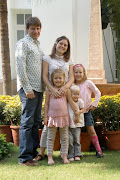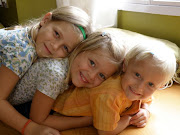It’s been about 36 hours since the attacks began in Mumbai, and it’s not over yet. From our vantage point here in Delhi, the whole nation is reeling in response to the terror. Since yesterday morning, we’ve been receiving phone calls and email messages from concerned family and friends from all over the globe. It appears that the whole world is watching the news about India and feeling the pain.
A Personal Response to the Mumbai Attacks
Basketball, Begging and Blessing: Another Reflection on Life in Delhi
I was feeling blessed that day, there in my bubble, driving my own air-conditioned car, listening to a favorite CD, and on my way to playing my favorite sport. All very nice.
I was headed across town to Chanakyapuri. It's the part of New Delhi that is home to most of the foreign embassies. I have recently been in the habit of visiting this area to play basketball. Once a week the American Embassy School (AES) opens its beautiful gymnasium for pick-up games. It's a very nice facility, the nicest of its kind that I've seen in India, and it attracts a very interesting group of people.
Most weeks, the group of players divides neatly into two: the first are men in their 30's and 40's who are in diplomatic service, most of whom are from nations of the former Yugoslavia; the second are young guys in their teens and early 20's, who are mostly South Asian and who have some affiliation with AES. I clearly do not belong to either group, but I am accepted nonetheless and find myself fitting into the mix.
An American medical doctor named Terry organizes the weekly event. At least he's the one to whom I paid my dues. But there's a Croatian guy named Drazan who is clearly a leader if an occasion arises when one is needed. For the most part, though, the atmosphere at these games has been very congenial. There in the safe confines of American territory, the rich get along with the rich.
So there I was that night, in one bubble and on my way to another. That's partly why the encounter that I had en route was so engaging.
At a red light, just before I entered Chanakyapuri, I was approached by a street beggar. She came to my window, and peered in, and by her motions made her request. My window was up, of course, to keep in the cool air and to keep out everything else -- the hot air, the noise, the pollution.
I looked at the woman, as is my custom. I gave her my attention and smiled. I rarely give money in these situations. When I can, I give food. But something I can always give is dignity, through some personal interaction, eye contact, a greeting and a smile. Sometimes I ask for their name. It's what we teach to our children.
Early on in our time in Delhi, I was a passenger in our friend's car when a beggar approached my window. I was given clear instructions by my Indian friend not to look the beggar in the eye. That was his approach to dealing with beggars, which is very common among India's rich. I respected his opinion, and it was obviously a very easy and effective approach. But out of conviction, I made a point not to follow that advice.
In my own car, on this day, I was looking. I was making eye contact. I was giving dignity. Still, my window was closed.
Street beggars are, of course, only one aspect of the poverty that we meet on a regular basis in Delhi. It has not been easy for us to know what to do for the poor here. We do give money to certain organizations that work among the poor. We have given food on occasion, directly to those in need, and clothing and blankets. We try to do our part, although in reality the needs are overwhelming and it's easy to become hardened. Even though you see it constantly, and you resolve to keep your eyes open, keeping your heart open is more difficult. Face to face contact with beggars is a vivid reminder of the challenge. Our hope is that we remain soft-hearted and sensitive, and that our hearts push us to act.
The lady at my window was bold and persistent, traits that are common among street beggars. More immediately noticeable, however, was her grossly disfigured face, what appeared to be the result of some kind of burn.
Still, I looked. I expect that even that, in this case, would have been difficult for my own children to do. I tried to be mature, to look beyond her scars and into her eyes.
Another thing I noticed was the paper in her hand. She was showing me something, and I made the effort to read it. It was a printout from a hospital, some kind of diagnostic report. I couldn't understand the details, but I assumed that she was making an appeal for help to cover her medical expenses.
Was the paper legitimate? We had heard about all manner of deception used by beggars to succor sympathy.
I looked again at the lady's face. I looked again at the paper. The date printed on it was current, two days old. But there were two other facts that I read on that paper that went directly to my heart. They had nothing to do with the proof of her legitimacy but everything to do with personal reference to me.
First, her name was familiar to me: Meera. It's a common name and it happens to be the name of the lady who works in our home. She has worked for us from the very first day that we moved into our home. She had approached us and offered her services. By now, she's an integral part of our lives in Delhi. Our children love her, and she loves them. Meera has been faithful to us, and we in turn have taken responsibility for her well-being.
When you know someone's name, something is different between you and them. A part of their identity is known to you, and you feel something deeper toward that person, a responsibility, an accountability. I felt something like that toward the Meera at my window.
The second thing I noticed on the paper was her age. She was my age, born in the same year. Maybe I shouldn't have been surprised. But she looked older, much older. Maybe it was her disfigured face. Maybe it was her tired eyes. Maybe it was all the pain and hardship that I had no idea about. We were so different, and yet the same.
Then the light turned green, and it was over. I was gone. And as I drove away, I thought about what I had done. I hadn't given much. But I had given something, and more than just the money.































